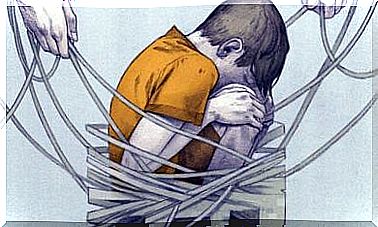Differences Between Separation And Divorce

It may seem the same, but it is not. In other words, the differences between separation and divorce exist legally, a fact that can personally affect each member of a relationship and also a family, since children also suffer the consequences.
When opting for the cessation of cohabitation between two spouses, it is important to know what they abide by. The first step is usually separation, the second, divorce, which is much more final.
What are the differences between separation and divorce and de facto separation
Let’s see what each formula consists of. On the one hand we have the separation, which implies an effective cessation of coexistence between spouses. However, it is not final nor does it have legal effects until a declaration is passed through a court ruling.
There is another figure, known as de facto separation, but which has no legal effect on third parties. That is, both spouses decide to end their relationship by ceasing living together, but it does not end the marriage. Finally, divorce does have legal effect on third parties and totally dissolves the marriage. Here if there will be a judicial sentence, it is a definitive formula to cease coexistence.

2 similarities and 3 differences between separation and divorce
We actually find three differences between separation and divorce that, legally, are the ones that have to be taken into account. So, if you are thinking about ending your legal relationship, it would be good to consider them:
- While the separation does not dissolve the marriage bond, the divorce does so definitively through a court ruling.
- A divorce implies the dissolution of the economic regime in the marriage. The separation only does so from the sentence.
- After separation, the spouses cannot remarry, either with each other or with other people, only after the divorce.
Now, in certain respects, the two legal formulas do resemble each other. They are these that we see below:
- It does not matter if there is legal separation or divorce, unless there is a will that specifies it, the legitimate right to inheritance is lost.
- Once there is a final judgment of separation or divorce, the measures regarding the care, custody and custody of the children, visitation regime, etc. are established. It also includes the cost of maintaining the children, parental authority, dissolution of the matrimonial property regime, use of the dwelling (s), etc.
Psychological differences between divorce and separation
Interestingly, separation is usually tougher than divorce. Usually, before getting to a divorce situation, the separation precedes. However, the marriage is not yet dissolved until the court ruling is reached. That is, you can still have some hope of resuming the marriage and redirecting the relationship.
In other words, the first and hardest step may be separation. However, once the divorce comes, it is likely that both spouses have rebuilt their lives, so the situation will not be so traumatic. In fact, it can even be considered a liberating experience. It is also possible that one of the spouses harbors hopes of returning and considers the final dissolution of the marriage as the final proof that the relationship has been definitively broken. It can be a tough time for one of you in this case.

Separation or divorce
Be that as it may, both situations are difficult. In these cases, both in one and the other, certain characteristics may be present that resemble the actual grieving process :
- Feeling of loss, expectations and ideals.
- Feeling that you have failed, a fact that can generate guilt.
- Suffering for the children and fear of the changes that are coming.
- Situations of low self-esteem, personal questioning and evaluation of the past.
- You can fall into depression, because it is not easy to end a relationship in which you have shared a lot for several years.
- Anxiety is also common. Associated chapters of insomnia may appear.
- There can even be cases of post-traumatic stress disorder, especially if there has been gender-based violence in between.
- In addition, it could be that one of the spouses shows symptoms of maladjustment and a tendency to isolation.
It is certainly not a pleasant situation for anyone. But as difficult as it is, we must try to rationalize and redirect our life after a separation or divorce, especially if there are children in common.









